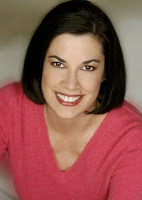Three Little Words and why not to use them
There are so many blogs with excellent advice on structure and character. I cannot hope to offer anything new or exciting or insightful. Besides, the way I plot a book is so simple that a first-grader could do it.
There are fewer posts about actual words and how to string them together. I, for one, could have benefited from reading that kind of post when I sat and wrote the first few lines of my first (truly awful) manuscript.
Beginning writers are often told, “Show don’t tell.” Hopefully, I’m not the only one who heard that. Someone else raise their hand. Please.
But what exactly does “show don’t tell” mean? Chekhov demanded, “Don’t tell me the moon is shining; show me the glint of light on broken glass.”
Stephen King famously noted, “Description begins in the writer’s imagination, but should finish in the reader’s.”
I have neither Chekhov’s gravitas nor King’s sales; what I do have is three little words that I avoid whenever possible.
IT is not my friend. IT is lazy. IT is vague. IT can be boring.
I wanted the package and he gave it to me.
He lifted the beautifully wrapped box with the tips of his fingers, as if pink was a disease, as if frilly might be catching. I snatched my prize from his hands.
TO can be your friend. Or not.
He gave the box to Ann. Perfectly fine.
He decided to give the box to Ann. Not fine. Another not-fine example? He lifted his fingers to touch her cheek. Another? He tried to put the box in her hands but she backed away.
When TO follows a verb—he tried to, wanted to, liked to, meant to—the sentence is most likely telling not showing.
AS, when used as a conjunction, can be problematic.
As he put the box in my hands, my fingers tingled.
As he told me his secret, I rubbed my hands together and swallowed a smile.
In essence, AS says, “this is what he was doing while I was doing that.” Telling.
He put the box in my hands. My fingers tingled and I yanked on the bow.
He whispered the secret. A juicy one. I rubbed my hands together and swallowed a smile.
Watch out for those three little words, edit them out before writing the best two little words—The End.
Julie Mulhern is the USA Today bestselling author of The Country Club Murders.
She is a Kansas City native who grew up on a steady diet of Agatha Christie. She spends her spare time whipping up gourmet meals for her family, working out at the gym and finding new ways to keep her house spotlessly clean–and she’s got an active imagination. Truth is–she’s an expert at calling for take-out, she grumbles about walking the dog and the dust bunnies under the bed have grown into dust lions.
She is a Kansas City native who grew up on a steady diet of Agatha Christie. She spends her spare time whipping up gourmet meals for her family, working out at the gym and finding new ways to keep her house spotlessly clean–and she’s got an active imagination. Truth is–she’s an expert at calling for take-out, she grumbles about walking the dog and the dust bunnies under the bed have grown into dust lions.










